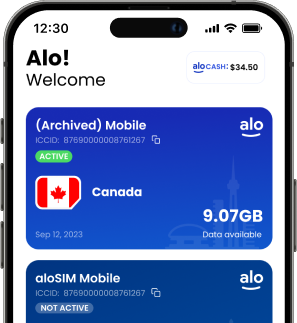School trips with teammates or classmates are unlike other forms of group travel (such as with families or adult friends).
Often larger with many more individuals in need of their own accommodations and schedules, it can be daunting to plan for the communications needs of each person as well as for the group as a whole.
These tips will help ensure that even the most chaotic group of young travellers will stay safe and have fun on their school trip.
1. Establish a clear and cohesive communication plan
Regardless of the ultimate reason for the trip, be it a sports event or cultural excursion, communication is key. When formulating the plan, consider factors such as the size of the group, the length of the trip, and individual needs of each participant — some will require more hands-on communications than others, based on their age, maturity, and previous travel experience.
2. Shared spreadsheet with all forms of contact
Gather all pertinent contact information from each traveller. With a Hushed online number with free calling between all Hushed U.S. and Canadian numbers, and with an aloSIM eSIM, each individual will have internet access allowing for multiple methods of communication prior to and during the school trip. Classmates who do not want their contact information shared beyond the necessities of the trip can cancel or change their Hushed numbers after they return home.
3. Designate “Communication Captains”
For younger travellers on a sports team the Communications Captain might be the coach, teacher, or parents chaperoning the event. For older students on a school trip, the captain can simply be a designated responsible peer who can keep a central list that includes everyone’s contact information, including their emergency numbers at home, and any crucial medical information, allergies, or special needs.
4. Establish emergency protocol
Hope for the best but plan for the worst is a worthwhile mantra when organizing school trips. Unfortunately, sometimes emergency protocols are needed for true emergencies (think: injuries, event security, or natural disasters) but sometimes it’s simply about having a contingency plan. For example, it might be as simple of an issue as taking the wrong bus or forgetting which time zone you’re visiting — but regardless of the reason, being able to send a quick message to a Communication Captain noting any issues will ease the minds of others on the school trip or sport trip who might also be able to offer a helping hand with whatever issue might arise.
5. Maintain regular check-ins
Regardless of the ages of the travellers a regular check-in can be a helpful tool for maintaining safety, both emotionally and physically while on a school trip. While sports trips and new experiences can be exciting, disruptions to routine can also present unexpected or stressful challenges. Staying in touch with all members of the group trip with a morning greeting or evening check-in can be good practice to gauge their whereabouts and offer any needed reassurances while they’re away from home.
After returning home, send an additional message to all those on the contact list (before they switch their Hushed numbers) to solicit feedback and help maintain clear and effective communications for subsequent travels.





